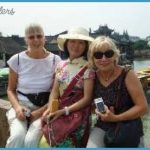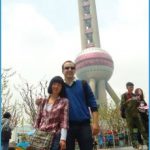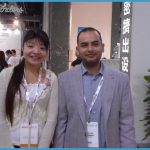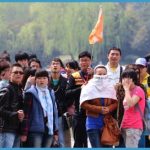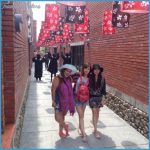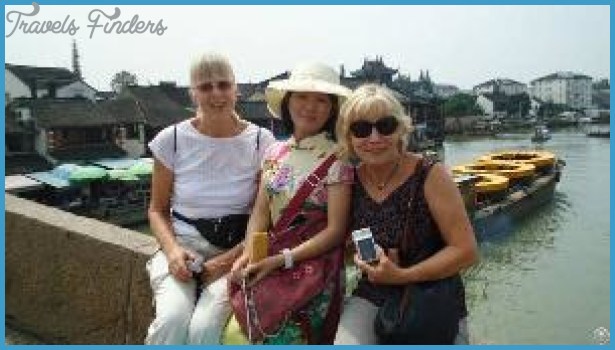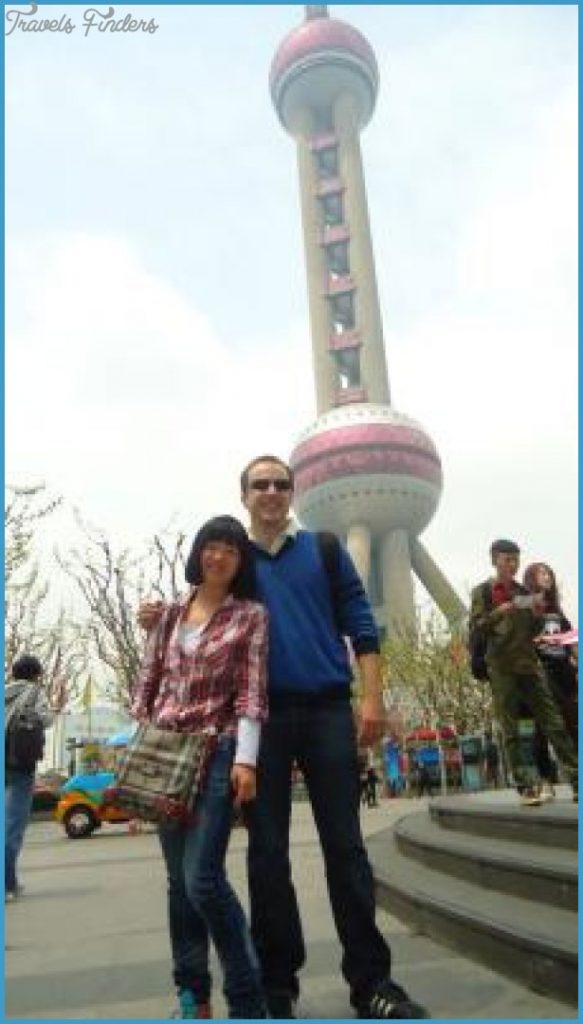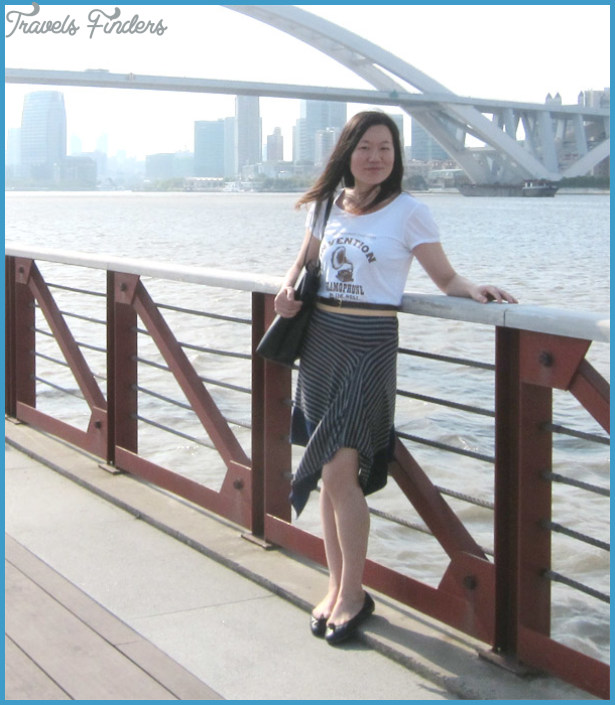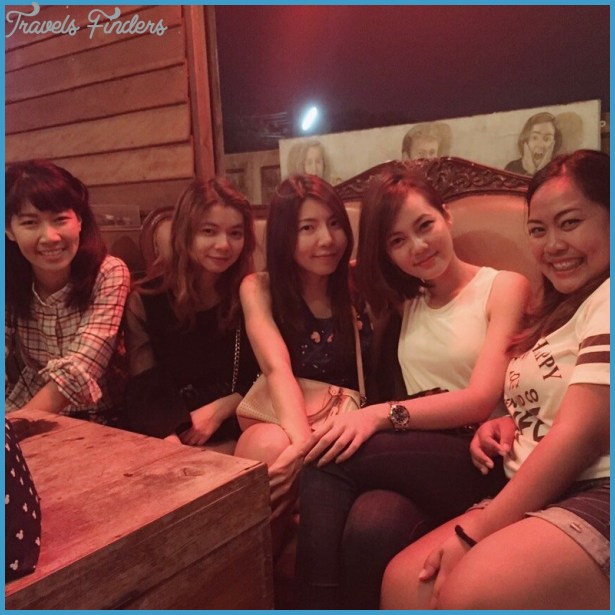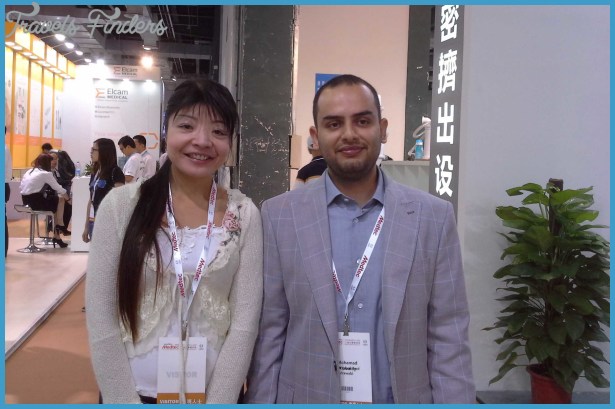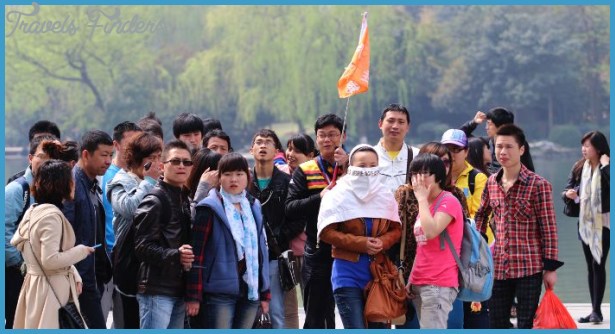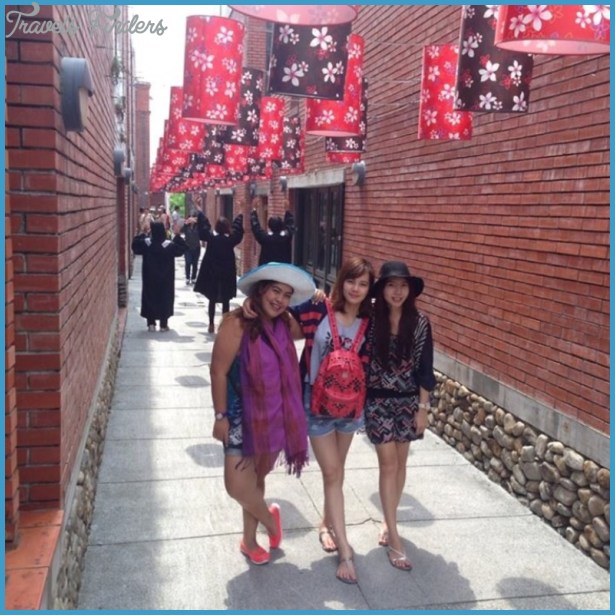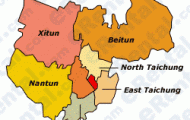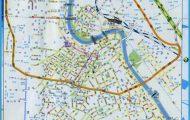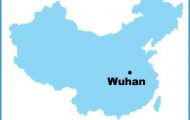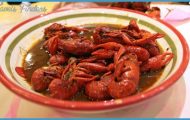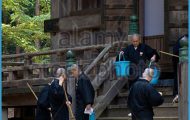Jiang Qing was born in Zhucheng, Shandong province to a merchant family and later became an actress in Shanghai. She met Mao Zedong at his headquarters in Ya’an and in 1937 he left his wife for her, but the Politburo insisted that she should play no part in political activities. For almost 30 years she contested this condition and it was 1966 before she entered public life by involving herself in cultural work (reforming Beijing opera), although later she became a driving force in the Cultural Revolution. During the early 1970s Jiang Qing rapidly rose through the ranks to the highest level of the party hierarchy. With three other top party functionaries she was responsible for the dismissal and persecution of almost an entire generation of party officials. As an advocate of radical ideologies Jiang opposed the rehabilitation of the more pragmatic Deng Xiaoping. On the death of Mao in 1976, however, Deng was in no mood for tolerance and Jiang was expelled from the party. In 1981 as leader of the Gang of Four she was condemned to death for “counter-revolutionary crimes”, attempting armed rebellion and torturing politicians during the Cultural Revolution. The death sentence was later suspended.
The writer Lao She was born in Beijing in 1898 and went to university there. He subsequently became a reader in the Chinese language at Oxford University. During the war with Japan Lao became president of the Chinese Writers’ Association. He was elected to the National People’s Congress in 1949. During the Cultural Revolution he was accused of “petit bourgeois thinking” and disappeared without a trace. He was rehabilitated in 1978.
His works which are of world class enjoy great popularity in China. His best known novel “The Rickshaw Boy” (1937) was filmed and received great acclaim. Other works include “The Tea House” and “Four Generations under the Same Roof”.
Little is known of Laotse the founder of Taoism. It is recorded, however, that he lived at around the same time as Confucius and Buddha and that he was born in 570 b.c. He worked as an archivist for the Zhou Dynasty and a number of legends have grown up around his life. According to one tale he was born after a pregnancy lasting 81 years (hence his name Lao Zi meaning “old master”). Another story recounts how he wrote “Tao Te Ching”, his most celebrated work and the principal inspiration for Taoism, in one day. This volume is divided into three parts which deal in turn with Tao, Yin and Yang. These are the fundamental elements of a philosophy which subordinates the life of the individual and society to a natural order. “Effortless action” is a guiding principle in life as the natural, harmonious order of things must not be disturbed. The wise man is advised to decline any opportunity to participate in public life and rulers are expected to show greater tolerance.
Also known as Li Tai-bai, this poet rivals Du Fu for the title of China’s finest poet. An obstinate and unconventional man – he spent some time in exile as he was accused of dishonesty at the Chinese court- he was a follower of Taoism and led a dissolute existence. According to one legend Li Bai drowned when in a drunken stupor he tried to catch the moon’s reflection in a lake.
His many poems are concerned with nature and the symbiotic relationship between man and nature. Literary historians regard him as one of the greatest poets of all time. The Chinese refer to him respectfully as the “immortal in exile”.

